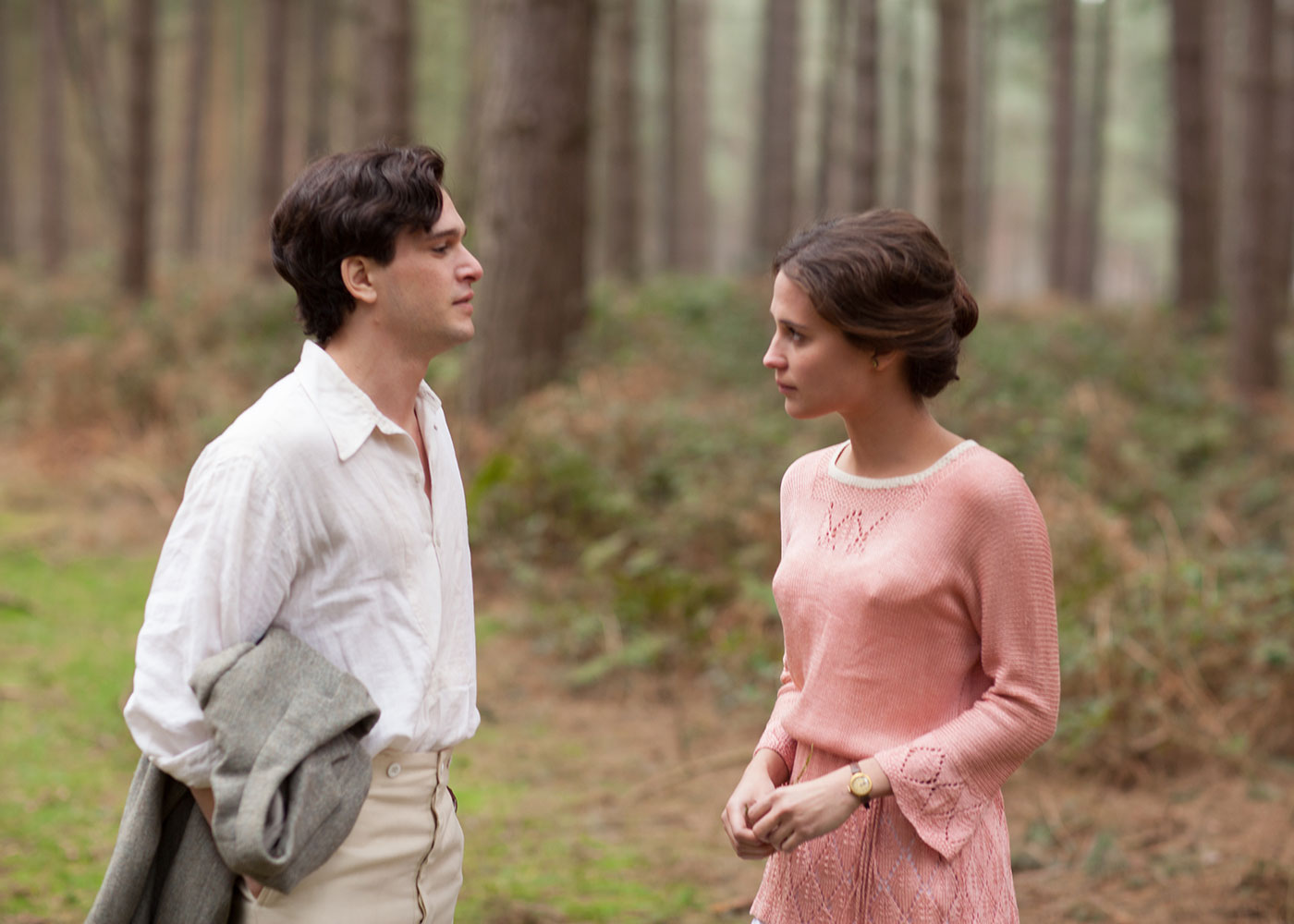I think somebody just wanted to see Alicia Vikander join the period piece crew. Come Alicia, your career awaits. You don’t really want this Ex Machina stuff, do you? We saw you blossom in Anna Karenina; this is where you belong, with long skirts, horses and dysentery. Join us … jooooooooiiiiin ussssss.
Mediocre biopics only come about every few weeks or so, and this is one. Setting Testament of Youth apart from others in the long run will be next-to-impossible, but I’ll try. The film begins with London celebrating the cease fire ending World War I. Everybody is jubilant except for killjoy Vera Bittain (Vikander). This is a Grade A film editing failure. In two seconds, you’ve let us know Vera survived the war, but somebody she cared about did not. What’s the point in telling us that at the outset, huh? Really? What’s the point? It might mean something if this biography covers 1914 to, say, 1930, but it doesn’t. You’ve given us the end of the film in the opening shot and then you take us back to 1914. WTF?!
So this is one of those stories in which we see how it all unravels, I suppose. A story where we see how war rips happiness to shreds. Hard-hitting stuff, indeed. The message would be a great deal stronger if Vera’s early life seemed dreamy. Yeah, swimmin’ in the nearby bog with your brother (Taron Egerton) and the guy you’re gonna dis (Colin Morgan) sure seems like fun. I mean, rural England is positively replete with unromantic, overcast, 17°c summer paradise opportunity. Back at the estate, however, the tune changes – daddy (Dominic West) has brought home a new player piano. That monster! Ah, but Vera is not a princess, she’s a writer. Her dreams of Oxford are being extinguished. Pouty doesn’t begin to describe her current paradise.
Exactly at the moment where she only declares she’ll never, never, ever marry, ever, ever, her future fiancée Roland (Kit Harington) enters.
[enter] Ghost of Matrimony Future: “Awkward.” [exit Ghost]
Roland isn’t deterred by declaration. Not terribly difficult to see why; Vera is probably the only girl he’s met. In quick succession, Vera tames the Oxford entrance exam despite her lack of Latin, and then tames Roland despite her lack of masculinity. And then war. It’s not like Testament of Youth is dishonest – that might be its problem – it’s just so terribly matter-of-fact. Here’s what Vera did next. Here’s what happened. Here’s what Vera did in response. Here’s what happened. Roland dies in Act II. We don’t get to see it; the movie follows Vera, not the fighting. I spill this because similar movies would have made Roland’s be a false death, especially as the camera never sees the body. That’s not the case here. So what to conclude? The romance was fun, but seemed harried due to the war. Would it have been as poignant were Roland’s time not limited? Was it  poignant at all? In retrospect, I felt like we let distinctly non-romantic moments slide because of the war – in most romances, say, a fiancée generally doesn’t knock his betrothed to the ground in anger.
poignant at all? In retrospect, I felt like we let distinctly non-romantic moments slide because of the war – in most romances, say, a fiancée generally doesn’t knock his betrothed to the ground in anger.
This film has faaaaar too many scenes of a train about to leave.
So … war is bad. Oh, don’t go out on a limb or anything. A lot of people lost fiancées and husbands and brothers and children to World War I. A lot of people had lives put on hold. There’s very little that made this story special. The only think I can see is that Vera Brittain actually wrote it, hence, (assumed) honest, first-hand account of pain. If that’s enough for you, congratulations; I need a little more.
Vera’s a nurse during War
Not exactly the foundation of lore
Lost a man or two
Entirely out-of-view
Am I the only one hoping for more?
Rated PG-13, 129 Minutes
D: James Kent
W: Juliette Towhidi
Genre: Real life, oooooo
Type of person most likely to enjoy this film: Vera Brittain
Type of person least likely to enjoy this film: The diarists unchosen in favor of this



